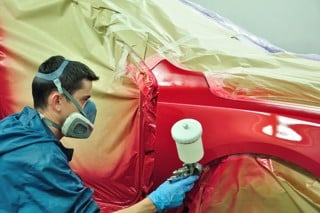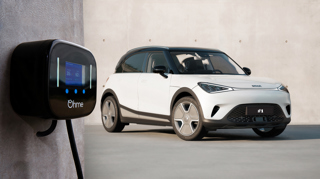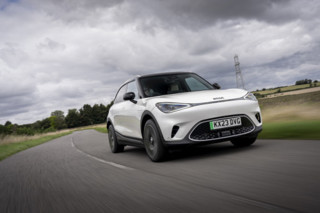The decrease was mainly caused by expenses of €800m (£541.4m) relat ing to the realignment of the Smart business model.
The impact from Smart reduced net income by €512m (£346.4m).
In the first quarter of this year, DaimlerChrysler sold 1.1m vehicles worldwide. Primarily due to the appreciation of the euro against the US dollar, DaimlerChrysler’s total first-quarter revenues decreased by 2% to €31.7bn (£21.4bn).
The Mercedes Car Group’s first-quarter unit sales decreased by 7% to 247,000 vehicles, while revenues were 11% lower at €10.4bn (£7.03bn). The division reported a first-quarter operating loss of €954m (£645.4m), compared with an operating profit of €639m (£432.2m) last year.
The Mercedes Car Group intends to improve its earnings by €3m (£2.02bn) and to achieve a return on sales of 7%.
Worldwide unit sales of the Smart brand increased by 32% to 26,400 vehicles. This growth was primarily due to first-quarter sales of 8,200 units of the Smart forfour, which was launched in 2004.
The supervisory board of DaimlerChrysler has approved the new Smart business model. As part of the new business model, fixed costs are to be reduced by 30% within the next two years and productivity will be boosted. The successor to the Smart fortwo planned for the year 2007 will also be specified to meet the requirements of the US market. Smart’s goal is to achieve breakeven by 2007.
For the further course of this year, DaimlerChrysler says the growth of worldwide demand for automobiles is likely to be slower than in 2004. In general, the group expects the highly competitive situation across the entire automotive industry to continue, due to further reductions in product lifecycles and ongoing over-capacity.
DaimlerChrysler anticipates a slight increase in unit sales in full-year 2005 compared with 2004.


















Login to comment
Comments
No comments have been made yet.